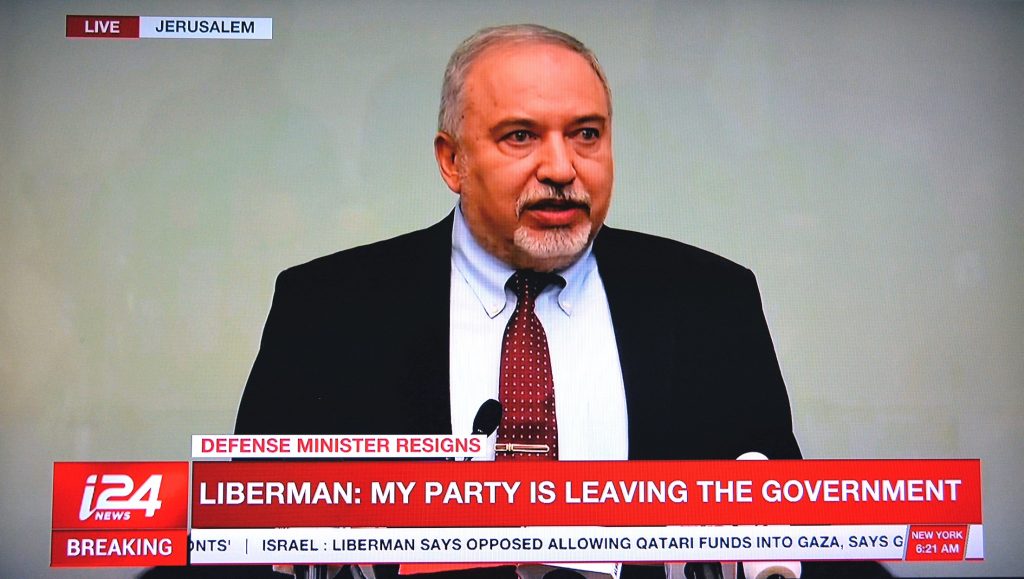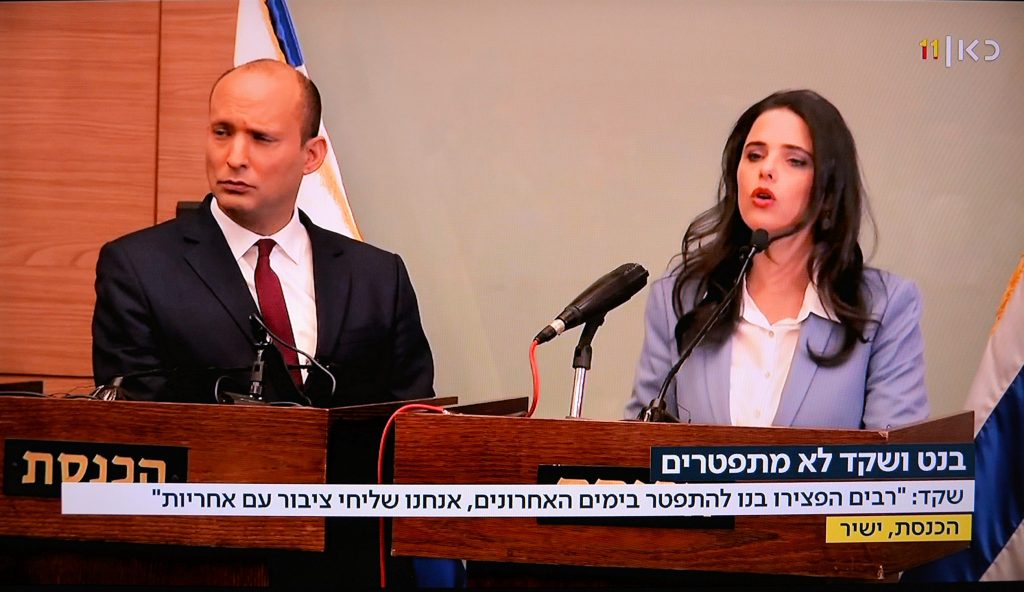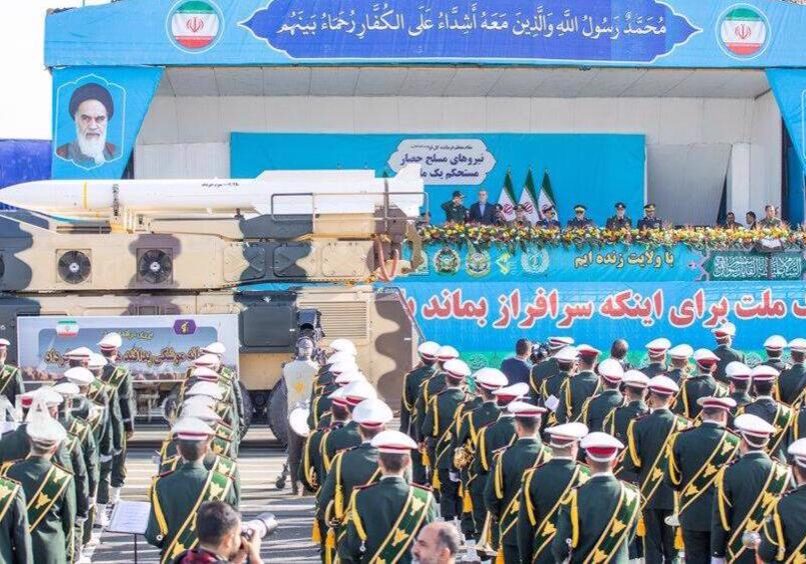Australia/Israel Review
How Netanyahu reversed course on early elections
Nov 29, 2018 | David Makovsky

In a rather dramatic turnaround, Israeli Prime Minister Binyamin Netanyahu has raised the stakes against a key political rival and scuttled efforts to hold early elections which seemed inevitable. The upshot is that his Government may now remain in power until regularly scheduled elections are due in November 2019 – though his coalition’s thinning 61-59 majority in the 120-member parliament means there are no guarantees it will last that long. Whatever the case, Netanyahu will temporarily serve as defence minister, foreign minister, and prime minister, perhaps the closest Israel has come to a de facto presidential system.
The move came in a nationally televised speech on Nov. 18, when he decided to go over the head of Education Minister Naftali Bennett and appeal to the country and his right-wing base directly. After calling Bennett wrong-headed for threatening to resign unless he received the defence portfolio, Netanyahu proceeded to argue that when right-wing governments were brought down from within during the 1992 and 1999 election cycles, they paved the way for left-wing governments that pursued supposedly inimical policies.

Naftali Bennett and Ayelet Shaked back down and stay in the Coalition
Following the speech, Bennett and his main Jewish Home party ally, Justice Minister Ayelet Shaked, faced pressure for putting their own ambitions above the goal of maintaining a right-wing government, spurring them to announce a change of heart. The rapid twists and turns have blindsided the Israeli political world.
Netanyahu had been begging his coalition partners to go to early elections for months, so what is behind his sudden reversal? First, it should be pointed out that his overall foreign policy outlook has remained consistent: namely, he agrees with the Israel Defence Forces leadership that a Gaza ceasefire is preferable to escalation given the more urgent priority of curbing Iran’s presence in Syria. Early elections could make it more difficult to maintain a ceasefire.
Netanyahu is also well aware that two of his three predecessors were driven from office following major upticks in Israeli-Palestinian violence. To be sure, recent polls indicate that 74% of Israelis are unsatisfied with his limited retaliatory response to the latest wave of Hamas rocket strikes. For now, though, he is unlikely to change that approach; instead, he seems keen on giving himself more time to recover from poor polling and avoid early elections that would put even more public focus on the Gaza flare-up. He cannot ignore public dissatisfaction, of course – his commitment to the stalemate is tenuous and could unravel if developments warrant. Yet he knows that the 74% poll result does not mean that anywhere close to that proportion of the electorate favours a full-scale ground incursion into Gaza given the risk of heavy Israeli casualties.
Netanyahu also appears to be betting that the recent resignation of Defence Minister Avigdor Lieberman, who said he wanted a tougher response to Hamas, will be forgotten if elections are pushed off. He knows it will be more difficult for Lieberman to critique him from the benches of the political opposition than from the press conferences and newspaper headlines regularly accorded to defence ministers. If the Gaza issue cools down in the coming months, Lieberman’s faction may have to run as an immigrants’ party – a tough platform to sell 30 years after the mass immigration of Jews from the former Soviet Union.
Another factor that may have changed Netanyahu’s desire for early elections is his seemingly cooling relationship with Russian President Vladimir Putin. Until recently, Netanyahu’s aides loved telling reporters that he was the only leader on the world stage who enjoys close ties with both President Donald Trump and Putin. In September, however, Syrian forces shot down a Russian military plane while attempting to counter Israeli airstrikes. Since then, Putin has refused to meet with Netanyahu directly, and speculation has grown that Moscow wants to constrain Israel’s ability to hit Iranian targets in Syria. The Prime Minister’s critics would no doubt use this tension against him in early elections.
Regarding US policy, the latest developments in Israel free the Trump Administration to put forward its long-awaited peace plan sooner rather than later. Such a plan would have a greater chance of success if Washington and Netanyahu waited for a potentially more centrist government to form. Yet the Trump Administration cannot wait until next November, since that would risk peace efforts spilling over into the next US presidential election political cycle. The White House may, therefore, decide to put its plan forward long before then. For his part, Netanyahu may be counting on the Palestinian Authority rejecting the US plan as insufficient, sparing him from having to say no to Trump himself.
In sum, Netanyahu has outmaneuvered his rivals by going straight to the public. Yet the narrowing of his parliamentary majority will likely embolden coalition members to push their agenda to the maximum, meaning his government may still fold before completing its term. For example, if ultra-Orthodox factions press their religious demands, at what point would succumbing to them risk alienating the other constituencies Netanyahu needs to win re-election in 2019? Likewise, the Gaza stalemate is very fragile and may not hold until next fall, ensuring a bumpy road ahead.
David Makovsky is the Ziegler Distinguished Fellow at The Washington Institute for Near East Policy and helped create its interactive mapping tool “Settlements and Solutions: Is It Too Late for Two States?”. © Washington Institute for Near East Policy, reprinted by permission, all rights reserved.
Tags: Israel






